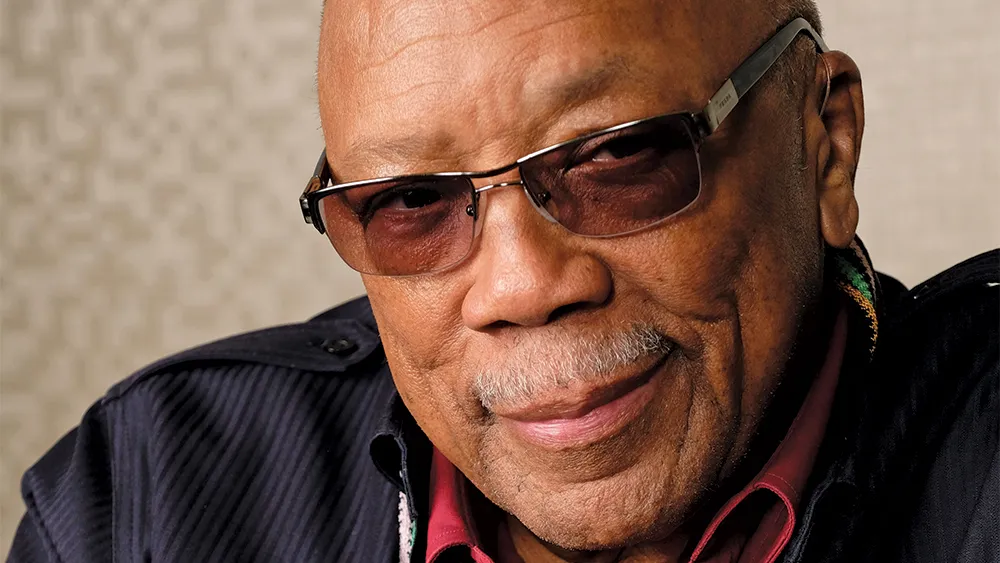
Quincy Jones, Pioneering Music Icon and Grammy Legend, Dies at 91

Quincy Jones, an icon whose influence shaped much of modern music, has died at 91 in Bel Air, California. Over his seven-decade career, Jones became known not just for his unmatched musical talent but for breaking barriers and redefining possibilities in multiple entertainment areas. He won 28 Grammy Awards—one of the highest tallies in Grammy history—and became a pioneer as a composer, arranger, and producer. Through groundbreaking collaborations with legends across genres, Jones left a lasting legacy of creativity and cultural impact.
Raised in Chicago, Jones discovered his love for music early, eventually mastering the trumpet. He studied at Berklee College of Music and joined Lionel Hampton’s big band before becoming one of jazz’s most formidable composers. By the 1960s, Jones set records, becoming the first Black artist to score a major Hollywood film with The Pawnbroker. His score work led to nominations for seven Academy Awards, and his involvement in film music expanded to movies like In Cold Blood and The Wiz, which also deepened his relationship with Michael Jackson.
Jones’s work with Jackson in the 1980s on albums like Off the Wall, Thriller, and Bad not only established Jackson as a global superstar but also set new standards in music production. Thriller, still the best-selling album worldwide, earned Jones Album of the Year at the Grammys and produced iconic hits like “Billie Jean.” Their collaboration marked a historic moment in pop culture, merging Jackson’s charisma with Jones’ production genius.
In 1985, Jones organised We Are the World, a star-studded charity single for African famine relief, co-written by Jackson and Lionel Richie. Featuring artists like Stevie Wonder, Diana Ross, and Ray Charles, it raised millions for charity and garnered critical acclaim, winning Jones three more Grammys.
Beyond music, Jones expanded into film and TV, producing The Fresh Prince of Bel-Air, a sitcom that launched Will Smith’s acting career. He also co-founded Vibe magazine, giving voice to hip-hop and Black culture in the media space. His later contributions included The History of Rock ‘N’ Rolldocumentary series, and in his final years, he collaborated with younger artists, maintaining a presence in contemporary music.
Jones’ legacy includes not only his countless achievements but also his advocacy. As a philanthropist, he received multiple honours, including the Kennedy Center Honors and a National Medal of Arts from President Obama. He dedicated much of his life to social causes, from education to African aid, making an impact beyond his creative work.
Remembered for his warmth, humour, and drive, Jones’ influence remains monumental. His ability to bridge genres and champion diverse talent made him one of the 20th and 21st centuries’ most revered music figures. His family noted that while they mourn his passing, his contributions to music, film, and culture will resonate for generations.
Read More:
- Farmer and His Two Sons Killed in Ebonyi by Suspected Herdsmen
- Malian Army Repels Terrorist Attack Along National Road 6
About The Author
Related Articles
Spotify Names Davido and Omah Lay’s “With You” Most Shared Song of 2025
Spotify has named “With You” by Davido and Omah Lay as the...
ByWest Africa WeeklyDecember 16, 2025TikTok’s Late-Night Live Ban Sparks Outrage in Nigeria
TikTok has quietly restricted late-night LIVE streaming in Nigeria, a move that...
ByWest Africa WeeklyDecember 8, 2025Wizkid, Seyi Vibez, and Asake Dominate Spotify’s 2025 Wrapped in Nigeria
Spotify has released its 2025 Wrapped data, and the results show another...
ByWest Africa WeeklyDecember 4, 2025Lagos Welcomes XVI Edition of S16 Film Festival Featuring Shorts, Features, and Panels
The 2025 edition of the S16 Film Festival officially opened in Lagos...
ByWest Africa WeeklyDecember 3, 2025












Leave a comment